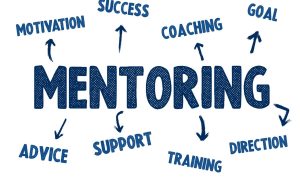Everyone has an inner voice. Sometimes it’s a cheerleader, and sometimes it’s a harsh critic that won’t let up. That critic, when it turns into a constant stream of negativity, shapes how you see yourself and how you engage with the world. Understanding what is the impact of negative self-talk and how to overcome it isn’t just about mindset—it’s about rewiring the very framework of how you think and behave.
Think about the last time you told yourself you weren’t good enough or that you’d inevitably fail before you even tried. Those aren’t harmless thoughts. Over time, they carve grooves in the brain, influencing emotions, decisions, and even physical health. The bigger question is, how do we stop this cycle?
Let’s explore the science, the roots, and the real ways people can break free from the spiral of negative self-talk.
The Neurological Impact
Negative self-talk isn’t just “in your head.” Neuroscience shows it activates the brain’s stress response. The amygdala, the region responsible for fear and anxiety, lights up when you engage in critical self-dialogue. This increases cortisol, the stress hormone, leading to physical effects like higher blood pressure, disrupted sleep, and weakened immunity.
A 2020 study published in Nature Communications revealed that repetitive negative thinking in older adults was linked to increased deposits of harmful proteins in the brain—markers tied to Alzheimer’s disease. That’s not just about mood—it’s about long-term brain health.
The other neurological impact lies in neuroplasticity. The brain strengthens the pathways it uses most. So if you constantly rehearse self-defeating messages like “I always mess up,” those pathways become dominant. This makes it harder to break free and easier to fall back into old patterns. The flip side? Positive reframing builds entirely new neural networks, shifting the balance toward resilience and self-belief.
Uncovering the Roots

Before we can fix negative self-talk, we need to understand where it comes from. Rarely does it appear out of nowhere. It’s often the result of conditioning, learned behavior, and early life experiences.
Early Life Experiences and Conditioning
Children absorb what they hear like sponges. If you grew up in an environment where criticism outweighed encouragement, it’s likely your internal monologue mimics that imbalance. For example, research from the University of Michigan found that children exposed to high levels of parental criticism often grow into adults who experience self-critical thinking patterns.
A real-world story illustrates this well: a client once shared how every time she brought home an “A” grade, her father would ask why it wasn’t an “A+.” Years later, even as a high-performing professional, she would second-guess every achievement. Her success was never “enough” because that voice had been internalized.
Learned Behaviors and Role Models
Negative self-talk is contagious. If parents, teachers, or peers constantly model self-deprecating speech—“I’m terrible at this” or “I’ll never get it right”—children imitate it. It becomes a learned behavior that feels normal.
Pop culture often reinforces this. Self-deprecating humor is seen as relatable and even charming. But when used constantly, it blurs the line between a joke and belief. Over time, what starts as a coping mechanism can solidify into an identity.
Negative Self-Talk as a Misguided Protective Mechanism
Here’s the paradox: negative self-talk often develops as a form of self-protection. The brain uses it to prepare for rejection or failure. By lowering expectations, you think you’re reducing the pain of disappointment.
But this protective shield backfires. Instead of cushioning failure, it creates self-fulfilling prophecies. Studies show that individuals who anticipate failure are far less likely to attempt challenging goals. So in trying to avoid pain, negative self-talk guarantees missed opportunities.
The Path to Overcoming
Breaking free from negative self-talk isn’t about silencing the inner critic completely. It’s about shifting its role. Instead of being an enemy, that voice can become a coach that highlights growth opportunities without crushing your confidence.
One practical method is cognitive restructuring, a technique from cognitive behavioral therapy (CBT). It involves catching automatic negative thoughts, questioning their validity, and replacing them with more balanced perspectives. For example, shifting from “I always fail at presentations” to “I had one tough presentation, but I’ve prepared better for this one.”
Mindfulness is another powerful tool. A study at Harvard found that mindfulness meditation reduces activity in the brain’s default mode network, the system linked to self-referential thought patterns. This means it helps people notice negative self-talk without getting trapped in it.
Advanced Strategies and Seeking Professional Support
Sometimes, self-help techniques aren’t enough. In those cases, advanced strategies make a difference. Therapies like Acceptance and Commitment Therapy (ACT) encourage people to accept negative thoughts as mental events, not truths. By creating distance from these thoughts, they lose their power.
Biofeedback and neurofeedback also show promise. These technologies train individuals to control physiological responses to stress, reducing the impact of harsh inner dialogue. Elite athletes use them to maintain focus under pressure, and the same principles can apply to everyday stress.
Support groups and coaching environments add another dimension. Hearing others share their experiences with negative self-talk helps normalize the struggle and fosters accountability.
When to Consider Professional Help
Knowing when to seek help is crucial. Occasional negative thoughts are part of being human, but persistent self-criticism that affects relationships, work, or health signals a deeper issue.
For example, someone who avoids applying for promotions or entering relationships because they believe they’re “not worthy” may benefit from therapy. Clinical depression and anxiety often amplify negative self-talk, and professional support can address both.
Psychologists often recommend starting with CBT, given its strong track record. According to the American Psychological Association, CBT has success rates of up to 75% in reducing symptoms of anxiety and depression tied to negative thinking patterns.
Long-Term Maintenance
Overcoming negative self-talk isn’t a one-time fix. It requires ongoing maintenance. Think of it like going to the gym—you don’t stop working out once you see results.
Journaling is one long-term strategy. By tracking recurring negative thoughts, you can spot patterns and intervene earlier. Another is surrounding yourself with “mirrors,” people who reflect back your strengths when you forget them.
Daily affirmations, when grounded in reality, also help. Instead of vague mantras like “I’m perfect,” more effective statements align with real evidence: “I’ve handled challenges before, and I can handle this too.”
Embracing the Journey

The road to silencing—or reshaping—the inner critic is rarely linear. There will be setbacks. Some days, the old voice sneaks back in louder than ever. The key is persistence.
Think about it this way: every time you challenge a negative thought, you’re rewiring your brain. Every step is progress, even if it feels small. Over time, those small steps compound, just like interest in a bank account.
And perhaps the most important part? Extending the same compassion to yourself that you so easily extend to others. Imagine speaking to a close friend in the same harsh tone you use on yourself—it feels unthinkable. Why treat yourself any differently?
Conclusion
So, what is the impact of negative self-talk and how to overcome it? The impact runs deep—it rewires the brain, damages confidence, and limits opportunities. But it’s not a life sentence. By understanding the roots, applying strategies like CBT and mindfulness, and seeking help when needed, anyone can rewrite their internal script.
It’s not about achieving perfect positivity. It’s about building a kinder, more balanced relationship with yourself—one that opens the door to growth instead of closing it.
FAQs
Negative self-talk is the internal dialogue that focuses on flaws, failures, and shortcomings rather than strengths or opportunities.
It increases stress, anxiety, and depression while reinforcing unhelpful thought patterns that limit personal and professional growth.
Mindfulness doesn’t erase negative thoughts, but it helps you notice them without being consumed by them.
If self-critical thoughts are constant and interfere with relationships, work, or health, therapy or counseling is recommended.





